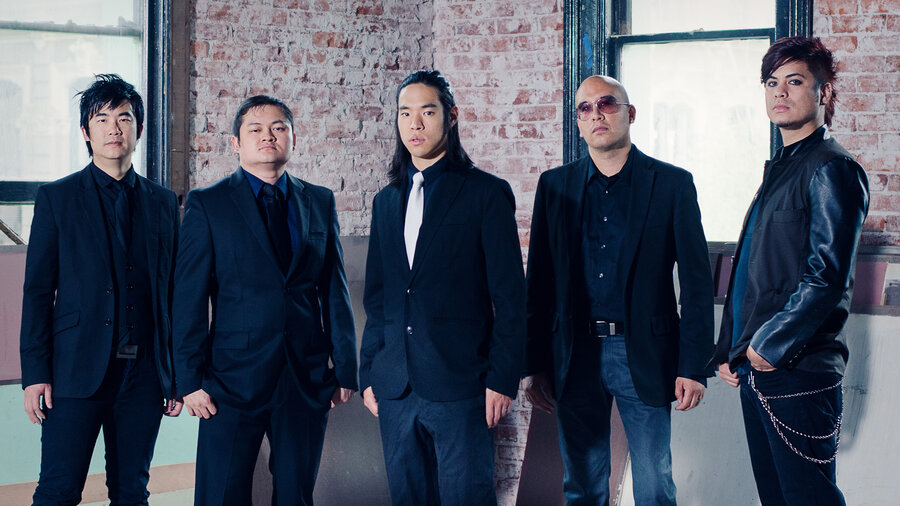 |
| Prof Alberts |
Afro-IP is delighted to receive a guest post from Prof Wim Alberts on a recent decision out of the United States on the registration of potentially disparaging words as trade marks. If you like this post, don't forget that you can hear more from the Prof at his seminar in April.
Time: 08:00 – 15:30
Venue: University of Johannesburg, Council Chambers, Madibeng Building, Auckland Park Campus
Attendance fee: R500
To register, please contact Mrs Morgan Buntting before 30 March 2016 –
Slanted Trade Marks and Permitted Disparagement
 |
| The Slants |
Ex Americana semper aliquid novi. This may be an apt
description for the ruling of the United States Court of Appeal for the Federal
Circuit in In re Tam, case 2014-1203,
decided on 22 December 2015. This 114 page decision makes for interesting
reading for a South African in particular.
The casus belli simply was a
trade mark application for THE SLANTS, filed in relation to entertainment in
the nature of live performances by a musical band. Section 2(a) of the Lanham Act prohibits,
amongst others, the registration of disparaging marks. Examples of marks that have been refused on
this ground include:
STOP THE
ISLAMISATION OF AMERICA
THE CHRISTIAN
PROSTITUTE
DEMOCRATS
SHOULDN’T BREED
FAGDOG
N.I.G.G.A.
NATURALLY INTELLIGENT GOD GIFTED AFRICANS
Analogous “positive”
marks that have been granted include:
THINK ISLAM
NEW MUSLIM COOL
MORMON SAVINGS
JEWISHSTAR
PROUD 2 B
CATHOLIC
In the Tam matter, the Trademark and Trial
Appeal Board refused the application for THE SLANTS as it was considered to
refer negatively to Asian-Americans. On
appeal, the court stated the following on page 13:
“Although the term “slants” has several meanings, the panel found
that substantial evidence supported the Board’s finding that the mark likely
refers to people of Asian descent. This included an article in which Mr. Tam
described the genesis of the band’s name by explaining: “I was trying to think
of things that people associate with Asians. Obviously, one of the first things
people say is that we have slanted eyes. . . Moreover, the band’s Wikipedia
page stated that the band’s name is “derived from an ethnic slur for Asians.”
The Wikipedia entry quoted Mr. Tam: “We want to take on these stereotypes that
people have about us, like the slanted eyes, and own them. We’re very proud of
being Asian—we’re not going to hide that fact. The reaction from the Asian community
has been positive.”
Also noteworthy
was Mr Tam’s statement that he named his band to “reclaim” and “take ownership”
of Asian stereotypes. Two important
statements by the court were that strict scrutiny is used to review any
governmental regulation that burdens private speech based on disapproval of the
message conveyed. It was then held that section 2(a), which denies important
legal rights to private speech on that basis, is such a regulation. Accordingly, it is subject to strict scrutiny.
It was said that it is undisputed that it cannot survive strict scrutiny (page
17). Of particular importance though is
the finding that the disparagement provision, which was held to discriminate
based on disapproval of the message of a mark, is not content or viewpoint
neutral. Earlier (page 4) it was stated
that it is a bedrock principle underlying the First Amendment that the
government may not penalize private speech merely because it disapproves of the
message it conveys. That principle, so it was said, governs even when the
government’s message-discriminatory penalty is less than a prohibition.
The court mentioned that another rejected
mark, STOP THE ISLAMISATION OF AMERICA, proclaims that Islamisation is
undesirable and should be stopped. The
court also expressed the view that many of the marks rejected as disparaging
convey hurtful speech that harms members of oft-stigmatized communities. “ However, the First Amendment protects
even hurtful speech” (page 4). The
important conclusion was reached that the part of section 2(a) that prohibits
registration of “disparaging” marks was unconstitutional (page 4).
The question that immediately arises is
what the impact of this decision will be on the famous WASHINGTON REDSKINS
dispute, where the REDSKINS mark was expunged for being disparaging? There it
was held in one of the various cases that a court must look at the views of
Native Americans, not the general public(page
36)). The basis of this decision is of
course that the part of section 2(a) is
constitutional. In the Tam ruling the court stated that what
the Patents and Trademarks Office does is to look at what message the referenced
group takes from the applicant’s mark in the context of the applicant’s use,
and it denies registration only if the message received is a negative one (page
22):
“Thus, an applicant can register a
mark if he shows it is perceived by the referenced group in a positive way,
even if the mark contains language that would be offensive in another context.
For example, the PTO registered the mark DYKES ON BIKES…after the applicant
showed the term was often enough used with pride among the relevant population.”
In a South African context, an outcome
such as that in the Tam case would be
unthinkable. A plethora of legislation
would see to that. What would be
interesting is how an “us” mark, that is, a mark filed by a particular disparaged
group would be approached here. Would
the “reclaim” notion be accepted? In the
United States it would seem that an application filed by an outsider cannot be
refused, as the disparagement bar no longer exists. Therefore, even speaking as a non-American,
one can perhaps predict that the Supreme Court will find grounds to overturn
the ruling.
Professor Wim Alberts
University of Johannesburg








